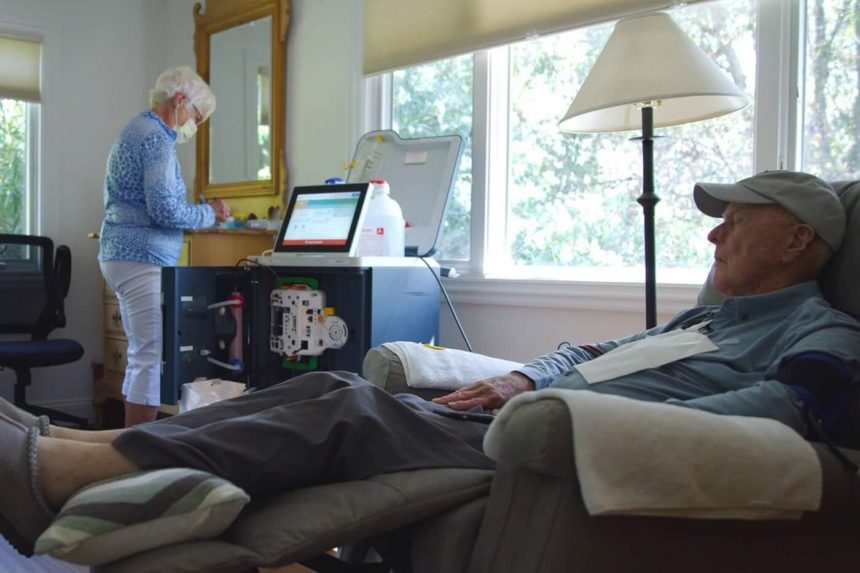
A bipartisan bill introduced late last week would allow more kidney patients to receive dialysis in the comfort of their homes.
The Improving Access to Home Dialysis Act would provide Medicare reimbursement for trained, professional staff to visit dialysis patients in their homes and assist them with their treatments. The legislation also would ensure that kidney patients are educated about treatment options early in their diagnoses and are provided with the support they need to dialyze in their homes.
“Home dialysis is a better treatment option than in-center dialysis for many kidney patients — it is far more flexible and can lead to better health outcomes and quality of life,” Rep. Bobby Rush (D-IL), the bill’s co-sponsor, said in a statement.
Approximately 750,000 adults in the U.S. suffer from irreversible kidney failure, requiring either multiple dialysis treatments a week or a transplant. Last January, the Centers for Medicare & Medicaid Services launched the End Stage Renal Disease Treatment Choices Model that requires 30% of kidney care providers in all 50 states to encourage home dialysis or transplants in an effort to cut Medicare costs by $23 billion over five-plus years.
Rush and bill co-sponsor Jason Smith (R-MO) said the COVID-19 pandemic has made in-home dialysis even more urgent, given the possible threat of contracting the virus at dialysis facilities. They are also calling on the Department of Health and Human Services to study racial disparities in the use of in-home dialysis.
“I am concerned by data showing that Black Americans are significantly less likely to be treated with home dialysis than their white counterparts,” Rush said. “While I am grateful that my constituents are able to rely on dialysis centers in their time of need, I have long worried about the proliferation of dialysis centers in poorer and minority neighborhoods. We must do more to ensure that all kidney patients are able to access the full range of treatment options.
Renal disease has proven to be costly to Medicare. Although roughly 1% of Medicare beneficiaries suffer from chronic kidney disease, they account for about 7% of all Medicare spending.




